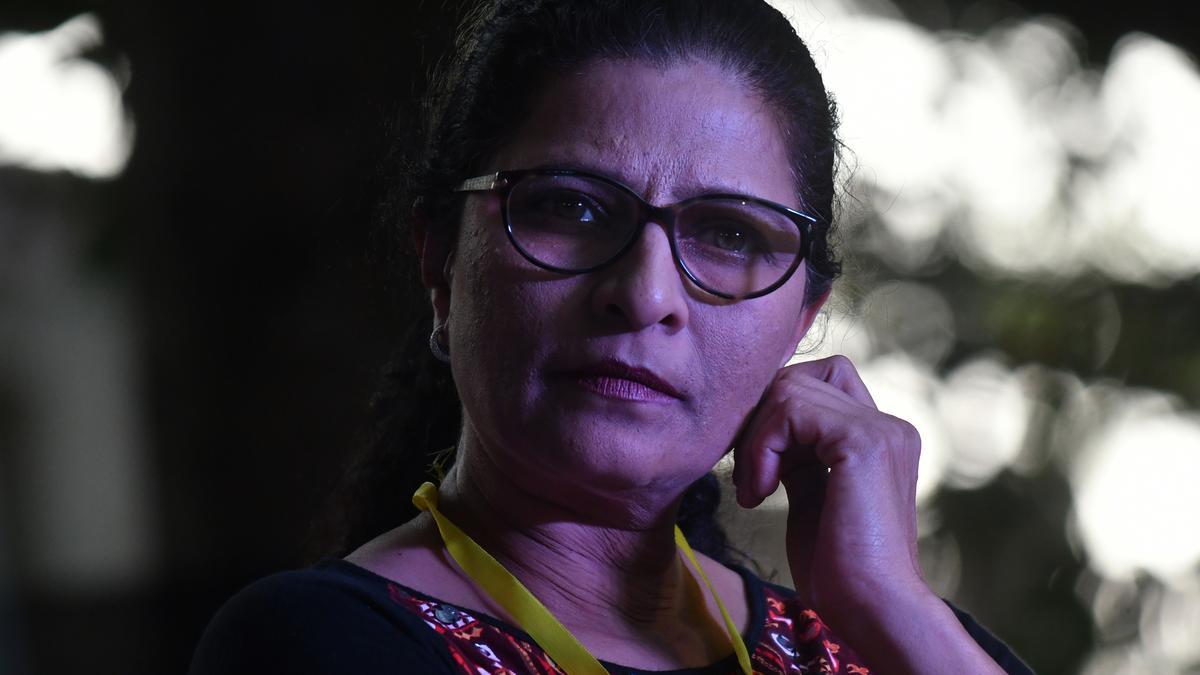
Two weeks after the K Hema Committee report exposed endemic issues within several Indian film industries, the Kannada film industry (KFI) has been actively responding to the situation. Following actor Sruthi Hariharan’s call for a similar probe in Sandalwood, members of the Film Industry For Rights and Equality (FIRE) have requested the Karnataka government to establish a committee, led by a retired judge, to scrutinize the issues women face in the industry, particularly sexual harassment.
FIRE, a non-profit organization formed during the #MeToo movement in 2018, initially emerged when Sruthi accused actor Arjun Sarja of sexual harassment. The organization is registered under the Societies Act and aims to combat sexual harassment and the casting couch culture in the film industry. The body is chaired by filmmaker Kavita Lankesh, with actor Chetan Ahimsa serving as its secretary.
On Wednesday, September 04, 2024, FIRE submitted a formal letter to Chief Minister Siddaramaiah advocating for “comprehensive measures needed to create a safe and equitable working environment for all women in the industry.” The 153-member panel counts several prominent names among its supporters, including actors Sudeep, Ramya, Kishore, Vinay Rajkumar, Sruthi Hariharan, Shraddha Srinath, Pooja Gandhi, Aindrita Ray, Diganth Manchale, Chaitra J Achar, Samyukta Hegde, and filmmakers B Suresha, Mansore, Jayatheertha, K M Chaitanya, and Pawan Kumar.
“Women have faced harassment in the film industry from time immemorial,” stated Kavitha Lankesh. “Those who did not comply with the whims of influential people have often been ostracized. Women who challenge injustices risk losing their opportunities. Sruthi faced exactly this predicament,” she elaborated.
Despite Sruthi Hariharan’s allegations against Arjun Sarja, which led to an extensive three-year investigation, the case was ultimately closed by the police due to a lack of evidence. “Unfortunately, many women who have lodged complaints in the past were silenced by powerful industry players. Their legal battles drag on for years, damaging their careers,” Kavitha remarked.
FIRE insists on a “thorough investigation into the systematic issues faced by women in KFI, including sexual harassment.” The organization also recommended the development of policies designed to foster a healthy and equitable working environment for women in the industry.
.
In their letter, FIRE proposed appointing a retired High Court or Supreme Court judge with a proven commitment to gender justice to head the committee. Immediate action was urged from the government to address the myriad issues affecting women in the film industry.
ALSO READ: Telugu Industry Women Demand Release of 2022 Harassment Report
Elsewhere, allegations of sexual harassment have deeply affected the Malayalam film industry, with luminaries in the Tamil, Telugu, and Hindi film industries also emphasizing the necessity for safer work environments for female artistes. Cinematographer Preetha Jayaraman, who has predominantly worked in the Kannada film industry, shared her insights on the misuse of power by those in elevated positions.
“Even though I have always worked on professional film sets where basic needs for women are met, there remains a significant harassment factor, especially affecting actresses and junior artistes,” expressed Preetha, a FIRE member. “Those within the industry are aware of how production executives poorly treat actresses, and the misuse of power is rampant. We need an uncompromising stance against unjust expectations from women,” she asserted.
Author and screenwriter Sandhya Rani echoed these sentiments, noting that the harassment faced by women in the film industry has been an open secret. “It was the elephant in the room. Only since the Hema Committee report has there been a transparent conversation about the issue,” she said.
Sandhya continued, “Women in the film industry are vulnerable due to the lack of fixed timings and guidelines on film sets. Men in dominant positions often set rules that favour them, even if it involves crossing ethical boundaries. As a result, those accused often continue their work unimpeded while those who raise their voices get ostracized.”
Kavitha Lankesh emphasized the necessity of treating everyone equally on a film set. “I’ve heard of cases where women are asked to work long hours even during their menstrual periods. The way women and junior artistes are treated is a clear indicator of how safe a film set is,” she concluded.
Published – September 04, 2024 06:50 pm IST
Kannada cinema
/
Indian cinema
/
Malayalam cinema












